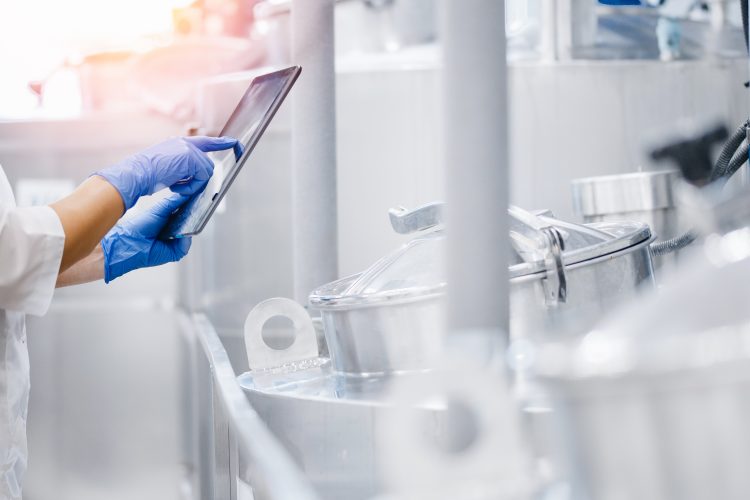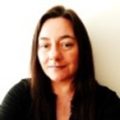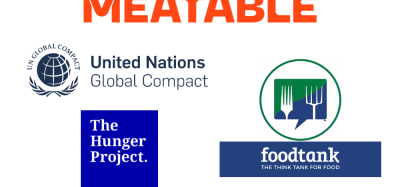Training future investigators for sustainable industry solutions
- Like
- Digg
- Del
- Tumblr
- VKontakte
- Buffer
- Love This
- Odnoklassniki
- Meneame
- Blogger
- Amazon
- Yahoo Mail
- Gmail
- AOL
- Newsvine
- HackerNews
- Evernote
- MySpace
- Mail.ru
- Viadeo
- Line
- Comments
- Yummly
- SMS
- Viber
- Telegram
- Subscribe
- Skype
- Facebook Messenger
- Kakao
- LiveJournal
- Yammer
- Edgar
- Fintel
- Mix
- Instapaper
- Copy Link
Posted: 19 January 2024 | Kathryn Whitehead | No comments yet
Kathryn Whitehead explains how the SurfSAFE project unites academia to reduce biofouling in food processing plants, emphasising interdisciplinary training and industry collaboration.


By Kathryn Whitehead, Professor in Microbiology at Interfaces at Manchester Metropolitan University
An ambitious project entitled SurfSAFE (Grant agreement ID: 952471), sponsored by the European Horizon 2020 program, has brought together an academic consortium (University of Porto, Portugal; Manchester Metropolitan University, UK; University of Copenhagen, Denmark; University Medical Center Groningen, Netherlands) to try to reduce critical zones of biofouling in food processing plants.
The SurfSAFE project aims to enhance the scientific and technological capacity of University of Porto in the fields of surface modification and biofilm analysis, promoting a European Network that guides the future development of tailor-made antifouling, antimicrobial, and non-biotoxic surfaces to reduce fouling and improve cleanability in the food industry.
As part of this project and following feedback from industrial partners, since the cleaning process involves the understanding of several disciplines, the core aim of this project was to train Early Stage Researchers (ESRs) so that they understand how these different specialities influence one another.
The power of projects
To do this, PhD students and Postdoctoral Scientists from the University of Porto have visited all three partner universities to carry out short projects and learn multidisciplinary skills. Manchester Metropolitan University has provided expertise in the fields of surface engineering and surface fouling, particularly in the food industry, the University of Copenhagen provided explanation in microbial interactions within biofilms, including gene transfer between bacteria, and the University Medical Center Groningen shared its knowledge in surface analysis, bacterial adhesion and biofilm imaging.
Short-Term Staff Exchanges (STSEs) have been carried out to better gather knowledge on each partner’s area of expertise and train students in these transdisciplinary areas. Training schools and scientific workshops with a duration of 2-3 days have been carried out, and these have included ‘Characterization of non-biotoxic, antimicrobial, anti-adhesive and biomimetic surfaces’ organised by Manchester Metropolitan University (UK), ‘Protein adsorption and biofilm formation”, which was held at University Medical Center Groningen, and a final workshop entitled ‘Bacterial interactions in multispecies biofilms’, which was organised by the University of Copenhagen. Three technical workshops were also prepared on ‘EU Proposal Preparation and Evaluation’, ‘Intellectual Property Rights: the Unitary Patent System’, and ‘Research Management and Career Development Training’.
Kickstarting training
The first technical session was organised by the University of Porto and aimed to enlighten its researchers on how to prepare a grant proposal and how its evaluation process unfolds. The panel of speakers consisted of a representative from a consultancy firm and two professors, one from Manchester Metropolitan University and the other from the University of Porto, both with extensive experience in evaluating proposals for EU framework programmes. The aim of the second technical workshop was to inform Portuguese audiences (primarily academics, but also representatives of management and administration services) on how to protect and exploit the intellectual property created at the university and the related procedures. Additionally, an introduction was made to the unitary patent system at the European level, a novelty that recently entered into force. Finally, Manchester Metropolitan University organised two days of training for ESRs, Postdoctoral Researchers, and staff from Porto in a range of core competency areas to successfully manage research-funded projects and careers. Technical training included sessions on funding opportunities, proposal writing, managing projects, communicating the research impact, handling Intellectual Property, and raising awareness – ‘from the laboratory to the market’, among other topics.
How manufactures can reduce food waste during food production
Bilateral meetings, brokerage events, and the final SurfSAFE conference have been important events that have promoted discussions between representatives from academia and various companies operating in the food industry in both the UK and Portugal. The first brokerage event of the SurfSAFE project consisted of a dedicated Action Tank session in the BIN@PORTO 2021 about ‘Food Safety – Monitoring and Mitigation Strategies for Safer Products’. It had almost 50 participants from Portugal and abroad, including companies, R&D institutions, Science & Technology parks, liaison organizations between industry, academia, and public sector, and government agencies. Under the cycle of talks ‘Voice from the Industry’, the coordination institution promoted the second brokerage event of the SurfSAFE project entitled ‘Food Safety’ in collaboration with PortugalFoods.
This event had a project member as the keynote speaker (presentation on the mitigation of microbial contamination in the food industry) and a discussion panel with the Project Coordinator and Portuguese companies in the food sector, including SONAE MC, Frulact, and Grupo Primor. The most recent brokerage event, titled ‘Surfaces Engineering to Mitigate Microbial Contamination in the Food Industry’, was held at the premises of the CECOLAB Association – Collaborative Laboratory Towards Circular Economy. It kicked off with a presentation from a project team member and was followed by a round table discussion moderated by the co-CEO of CECOLAB, having in the panel the Project Coordinator and the representatives of the invited companies linked the meat and dairy production, namely Queijaria Ferreira da Estrela, Fumeiro de Seia, and Queijaria Flor da Beira. Recently, the final project conference took place in Porto, with the presence of around 72 people from nine different countries, most from academia, but some from companies linked to the food industry (Navires – Sociedade Nacional de Víveres Lda, Perfinox, and Grupo Primor) that accepted our invitation to be present during the three days of the event.
In addition, during the project time, we have had the involvement of three industry-based members in the Advisory Board and the support of five industrial organisations and one industrial association, which are contributing to strengthening the academic-industrial bond and to the exploitation and commercialisation of project results. Expert visits from internationally renowned research institutions to the University of Porto also took place (Darla Goeres and Matthew Fields, Montana State University, USA; Bill Keevil, University of Southampton, UK; and Torben Skovhus, VIA University College, DK). The key findings of our work are currently being developed and ready for publication in peer-reviewed journals and presentation at several international conferences in the field.
More information about the SurfSAFE project can be found at https://surfsafeproject.eu/.
About the author











